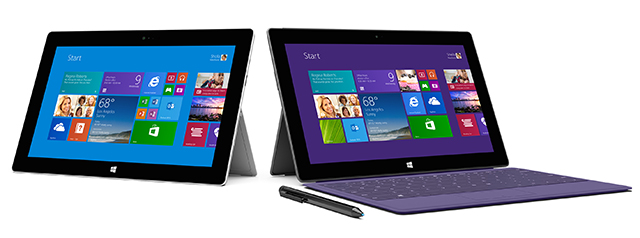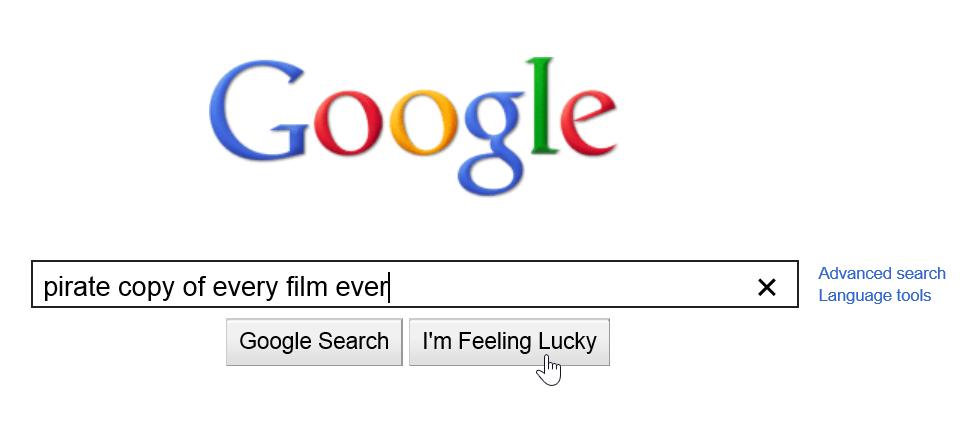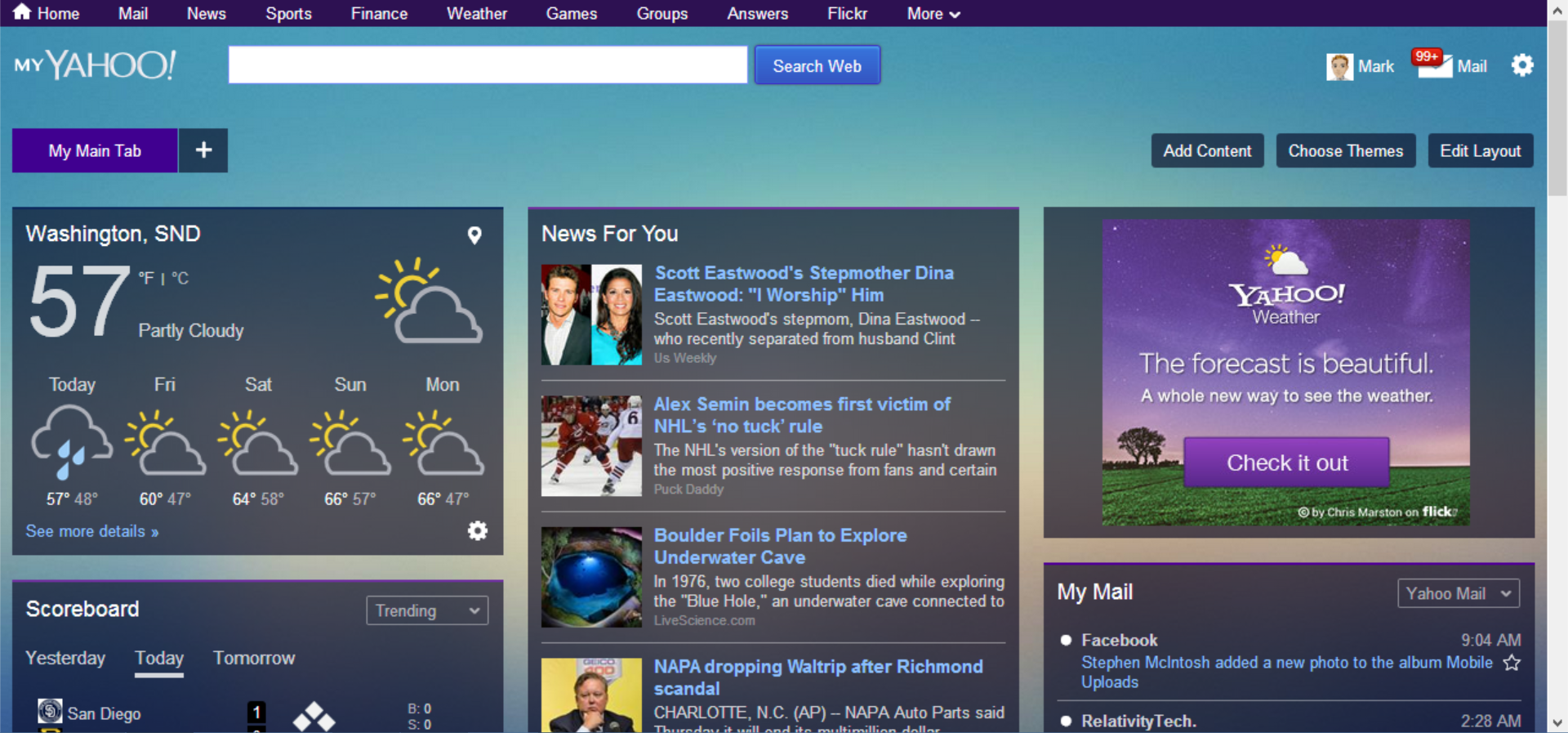
British children want tablets, shun social networks
According to a new report by the UK media regulator Ofcom, tablets are becoming the must have device for children, displacing the smartphone for younger age groups.
Around a quarter of children aged 12-15 (26 percent) and 18 percent aged 8-11 now have their own tablet computer, while household ownership of a tablet has more than doubled since 2012 to 51 percent up from 20 percent. Use of a tablet computer at home has tripled among 5-15s since 2012, 42 percent up from 14 percent, whilst a quarter of 3-4s now use a tablet computer at home.

Google buys webcam gesture app Flutter
Flutter, the app that lets you control music and movie playback using gestures picked up by a webcam, is to continue life as a Google product. The innovative app is the latest acquisition by the search giant, and comes just three years after the company was founded in San Francisco, California. Flutter is extremely upbeat about the purchase, seemingly keen to reap the benefits of the Google marketing machine.
Flutter CEO Navneet Dalal announces the acquisition on the Flutter website:

The BFI announces new online movie-streaming service
The British Film Institute (BFI) today announces plans to launch its own online movie-streaming service, offering a mix of free and paid-for viewing, all presented in HD quality.
BFI Chair Greg Dyke unveiled the BFI Player at a London press event earlier today, saying: "The launch of the BFI Player is a defining moment in the BFI’s 80 year history -- it will unlock the past, present and future of British film and, most importantly, offers a new deal for UK audiences to get great films out to as many people as possible across the UK. I’m really excited about the BFI Player’s potential. The BFI is pivotal to identifying great films and nurturing and giving a voice to great filmmakers in the UK and now offers a platform to take these stories out to whole new audiences".

I have my doubts about Bitcoin
Almost every week some reader asks me to write about Bitcoin, currently the most popular so-called crypto currency and the first one to possibly reach something like critical mass. I’ve come close to writing those columns, but just can’t get excited enough. So this week when yet another reader asked, it made sense to explain my nervousness. Bitcoin is clever, interesting, brilliant even, but I find it too troubling to support.
But first, why should you believe me? You shouldn’t. Though I’m year after year identified by the Kauffman Foundation as one of the top 50 economics bloggers in America, that only means I get to hang out occasionally with the real experts, eating Kansas City barbecue. Unlike them I’m not an economist, I just play one on TV. So don’t take my word for anything here: just think about the arguments I present and whether they make sense to you.

5 things I love about Google TV
Google TV started slowly, with a less than stellar launch thanks to the overpriced and barely functional Logitech Revue. Since then, the platform has managed to slowly get off the ground, though still not living up to its full potential. Better pricing and improved functionality has raised expectations, however, giving cause for hope among the faithful.
The platform is already solid enough to power a living room's entertainment with no problem, as I have been doing since earlier this year when my HTPC simply became too old and slow to handle the task any longer. But questions lingered when I made this shift -- how would I access my stored media? What about the web?

Facebook isn't getting rid of ads, but will make them more relevant to you
Facebook wants to show you more relevant ads. Advertisements are the price we pay for free online content and services, and there are no signs of it vanishing any time soon. Even though this is something internet users have accepted for some time, there are often complaints about the unsuitability of ads. Far fewer people have a problem with seeing adverts for products and services they might genuinely be interested in than those that have no relevance to their lives.
In a blog post Engineering Manager for News Feed Ads, Hong Ge explains that Facebook would like to ensure that the ads that make it into your timeline are more relevant. If you're anything like me, you've probably built up something of a mental filter for "pointless" ads, and maybe even those that might be of interest, but Facebook is keen that you see more ads and that you respond to them positively.

Microsoft reveals 37,000 data requests from law enforcement agencies
Just about every company with an online presence is getting into the sharing game. It's something we’ve already seen from other companies. Facebook has already shared information about the data requests it has received from governments, and LinkedIn, Microsoft and Google all want to be able to tell us more. Now Microsoft is sharing what it can about the requests for information it has received from law enforcement agencies around the world.
The company's second Law Enforcement Requests Report covers the first six months of 2013 and reveals the requests received for data about users of all of Microsoft's online services. There is no particularly detailed breakdown of the figures, but they do include requests made for information about Skype. Despite collating figures for all Microsoft services, it looks as though the number of requests is in line with the figures from last year. In the first six months of 2013, Microsoft received a total of 37,196 requests relating to 66,539 accounts. This compares to 75,378 requests impacting 137,424 accounts throughout the whole of 2012.

More than half of tech professionals would take a pay cut to work from home
Working from home is something of a luxury, but it's also not easy -- this is something I know from personal experience. I've been a home worker for around a decade now, but it does take some getting used to. Tell people that you work from home and there's usually a look of jealousy in the eyes the ones who have to stay behind at the office each evening. Home working means being able to pick your own hours, not having to deal with the daily commute, and not having to do the coffee round, but would you be happy to pay for the privilege?
We already know that most people would rather work from home than have to trudge to the office every day, but a new report from GetVoIP reveals that taking a pay cut would be an acceptable compromise for most tech professionals. A survey of 501 workers shows that 53 percent would be willing to earn a smaller pay check each month if it meant they could work from the comfort of their own home.

Japanese court fines Apple ¥330 million in click wheel patent case
Apple is ordered to pay ¥330 million ($3.3 million) to Japanese inventor Norihiko Saito after a court ruling.
The case refers to the click wheel controller used on iPod Classics since 2004. The court heard that Mr Saito's company held a patent for the technology dating back to 1998.

RealNetworks simplifies video sharing with RealPlayer Cloud
Now here's a blast from the past. RealNetworks (remember it?) is launching RealPlayer Cloud, a new service that aims to make it easier than ever to share videos between devices and across platforms. The service has been developed to help avoid the need to transfer videos from one device to another or upload them to an online storage repository ready to download elsewhere.
The idea is that users do not have to worry about the platform videos will be viewed on, or the format they are saved in. There are a huge number of video codecs in use, so the appeal of something that helps to overcome compatibility issues is understandable. There are plenty of services that already make it possible to stream video wirelessly from a PC to an iPad or other device. This is nothing new, nor is the ability to pick up from where you left off watching when you switch devices.

Microsoft announces Surface 2 and Surface Pro 2
At an event in New York, Microsoft reveals the successor to the Surface RT and Surface Pro -- the predictably named Surface 2 and Surface Pro 2 (interesting to note that the "RT" is gone from the former's name) -- and Brian Fagioli was live-blogging from the event. So what do we have to look forward to from the product refresh?
The first generation Surface tablets suffered poor sales and came in for criticism from many quarters, so there is certainly room for improvement.

Motion Picture Association of America blames Google for online piracy
Piracy is a problem, a big problem. A few days ago I wrote about the consequences of piracy and the fact that it is far more than just the copyright holder who is affected. While I believe that piracy should be viewed as something other than theft, it is obviously still wrong. The label "wrong" sounds almost belittling, but there are few people who would deny it is an issue that needs to be tackled.
The obvious targets when cracking down on piracy are the people who are illegally downloading music, movies and software they are not entitled to, but this does not really nip things in the bud. Piracy is a very complex issue, and as with any complex issue a scapegoat is needed. The Motion Picture Association of America is understandably keen on stemming the flow of illegally downloaded films and it is pinning the blame, at least partly, on Google.

New My Yahoo aims to make the internet personal again
Not content with its new logo, Yahoo is now pushing the personal homepage with the relaunch of My Yahoo. It's a blast from the past in many ways. The personalized portal is something that had virtually died off, but Yahoo is keen to dust it off, give it a polish and entice people back into using it.
If you’re the kind of person who likes to be able to access everything in one place, the resurrected My Yahoo just may well appeal. "Resurrected" might not be the right word. My Yahoo never really went away, it just faded into obscurity and everyone forgot about it. But now it's back with knobs on -- and quite a lot of purple.

Any.do bridges the web-desktop divide with new Chrome app
There can be few of us who don’t rely on a todo list of one form or another to manage our increasingly hectic schedules -- and there are certainly plenty of tools to choose from. To help juggle deadlines and manage my time, I've long relied on Any.do, starting off with the iOS app and then migrating to the Android version and Chrome extension. Now there's a new tool to play with: the Any.do Chrome App.
Google recently celebrated Chrome's fifth anniversary with a push of apps for the browser, and Any.do is just the latest big name to find itself included in the For Your Desktop section of the Chrome Web Store. As there was already an extension available, what’s the point of a separate Chrome App?

Manage your electronic life with doxo
We all have information relating to banks, insurance companies, utilities, retailers and more that we need to keep. But now that we increasingly manage our accounts online how do you cope with saving statements and other important information that you receive electronically?
The online organizer service doxo thinks it has the answer and has added email to the range of information it can collate. The doxo Email Import option automatically imports, organizes and archives all of the emails for key accounts that you receive through your inbox and it works with Gmail, Outlook.com and all the leading mail providers.
